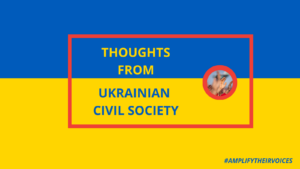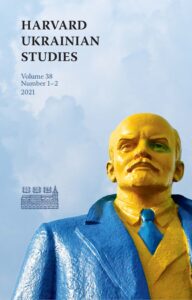Holding a referendum on compromises with Russia in war-torn Ukraine would be next to impossible without a ceasefire, so Ukrainian President Volodymyr Zelensky will have to get Russian President Vladimir Putin on board with the idea, first, Newsweek reports:
Michael Kimmage, a professor of history at Catholic University and fellow at the German Marshall Fund, also cast doubts on the ability for Ukraine to hold a referendum on terms of the compromise in its current state of unrest. However, he said Zelensky understands he needs the country’s backing and will be in “real trouble” politically if he’s perceived as being weak or going over the heads of the Ukrainian people. But, relying on a vote to dictate the terms of the compromise could complicate a deal.
“I don’t think people are in the mood to compromise, especially with Russia brutalizing Ukrainian populations,” Kimmage said. “It’s a Hail Mary and people could vote against some kind of extreme compromise [that would end the war], but it’s the only way it could be done.”
 How should the West respond to Putin’s alarming rhetoric and threats? Anne Applebaum asks.
How should the West respond to Putin’s alarming rhetoric and threats? Anne Applebaum asks.
Ukrainians and the democratic powers that support Ukraine must work toward not a truce, a muddle, maintaining a resistance, or to “bleed Russia dry.” The goal must be a Ukrainian victory, she writes for The Atlantic.
The war in Ukraine is only three weeks old, Peter Grier and Noah Robertson report for the Christian Science Monitor. But in that brief time the sense that in this historical era authoritarians are on the march – that they have more energy, vision, and vitality than democratic counterparts – may have been defeated, experts suggest.
 “If that’s the case, this will not only be Putin’s Waterloo, it may prove to be the Waterloo for global authoritarianism to some extent as well,” says Stanford University’s Larry Diamond.
“If that’s the case, this will not only be Putin’s Waterloo, it may prove to be the Waterloo for global authoritarianism to some extent as well,” says Stanford University’s Larry Diamond.
But it is wrong to frame the conflict in Ukraine in terms of a global “battle between democracies and autocracies,” one analyst contends.
President Joe Biden can lead the US to success in the present crisis, if he is clear about its parameters. The enemy is not an abstraction called “autocracy”. It is a specific aggressor in a defined territorial conflict, The FT’s Janan Ganesh argues. Inducing a change in its behavior might be possible, but it is likely to require the co-operation of the oil-rich Saudis, the strategically located Turkey and a Chinese state that has the wherewithal to cushion Russia against sanctions. That none of these countries are liberal democracies doesn’t reduce their circumstantial usefulness.
 Yet the war is exposing systemic flaws within autocratic political systems, other observers contend.
Yet the war is exposing systemic flaws within autocratic political systems, other observers contend.
“With authoritarian regimes, the risk is that power becomes so centralized in one person or a small group and they end up just only hearing the information that they want to hear,” argues Tufts University professor Michael Beckley, co-author of a Foreign Affairs analysis on how Ukraine is fortifying democracies.
“Dictators, just because they’re so used to being able to exercise power by fiat at home, suddenly have a rude awakening when they try to push abroad,” he observes.
Zelensky has been remarkably successful by leading Ukraine in throwing off Russia’s “Bear Hug of Authoritarianism,” according to the University of Nottingham’s Fernando Casal Bértoa and Central European University’s Zsolt Enyedi. Of all the democracies that emerged in the collapse of the Soviet Union, Ukraine has suffered the most from Russian interference, they write for Foreign Policy.
 The war has also been a salutary reminder to democracies of the moral imperative to defend basic liberties and resist autocracy, says a former National Endowment for Democracy (NED) board member.
The war has also been a salutary reminder to democracies of the moral imperative to defend basic liberties and resist autocracy, says a former National Endowment for Democracy (NED) board member.
“This has been a wake-up call to those democracies and like-minded countries and nations that yes, there is a real challenge here to everything that we stand for,” adds Paula Dobriansky, senior fellow at Harvard University’s Belfer Center and former undersecretary of state for global affairs.
“The unified response of the West somewhat undermines the arguments that one used to hear not too long ago that the West was too internally divided both within countries and across countries to stand up to the rise of authoritarian states like Russia and China,” according to Brian Taylor, professor of political science at Syracuse University’s Maxwell School of Citizenship and Public Affairs.
Ukrainians & the democratic powers that support Ukraine must work toward not a truce, a muddle, or to maintain Ukrainian resistance, or to “bleed Russia dry.” The goal must be a Ukrainian victory, @anneapplebaum writes for @TheAtlantic https://t.co/ALeFnF7g5g
— Democracy Digest (@demdigest) March 22, 2022







